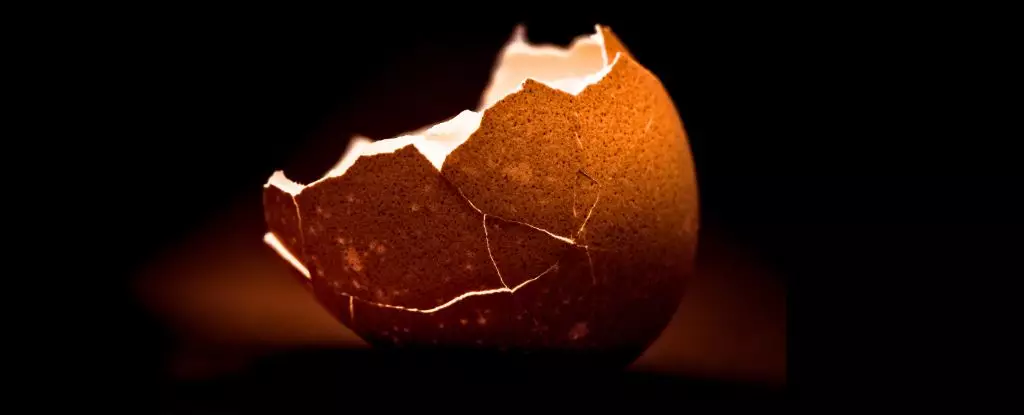Boiled eggs are a breakfast staple, a snack on the go, and a crucial ingredient in many dishes. However, anyone who has tried to peel a freshly boiled egg knows the frustration of battling stubborn shells. It can be disheartening to see a beautifully cooked egg reduced to a mangled mess, with bits of white clinging to the shell. Fortunately, science provides clear insights into why this happens and offers effective strategies to ensure your hard-boiled eggs come out perfectly every time.
The Science Behind Egg Peeling Dilemmas
The difficulty in peeling hard-boiled eggs largely stems from the structural components of the egg itself. An egg’s composition includes a delicate shell, porous membranes, albumen (the egg white), and a yolk surrounded by numerous layers of protective barriers. When eggs are fresh, the albumen has a lower pH, making it more likely to bind tightly to the inner shell membrane, hence creating that dreaded sticking problem. Interestingly, as eggs age, the pH value of the white rises, leading to easier peeling. This phenomenon occurs because fresh eggs have lesser air cells, and as they lose moisture over time, the air pocket increases, creating a buffer between the white and the shell.
The Role of Storage Techniques
Storage is a crucial piece of the puzzle. Research indicates that eggs should ideally be stored at room temperature, approximately 22 degrees Celsius (72 degrees Fahrenheit), for optimal peeling results. Keeping them in the refrigerator may seem like a standard practice, but cooler temperatures can actually lead to more challenging peeling experiences, especially with fresher eggs. However, there is a disclaimer: storing eggs at room temperature may not be feasible for long periods due to spoilage concerns. Hence, selecting eggs that have been properly handled and sourced is key to balancing safety with peeling ease.
Strategic Cooking Techniques
To master the art of peeling, consider adjusting how you boil your eggs. Many enthusiasts recommend starting with a pot of boiling water and gently lowering the eggs into it. This method helps avoid the external cracking due to sudden temperature changes, which can happen if cold eggs are placed directly in hot water. The initial exposure to high temperatures has benefits—it allows the proteins in the egg white to denature and bond with each other more effectively than with the shell membrane.
Post-boiling, chilling eggs in ice water can further aid in the peeling process. This simple hack causes the egg white to contract slightly away from the shell, making it easier to remove. The general guideline is to let the eggs sit in the ice bath for at least 5 to 10 minutes before attempting to peel them, ensuring you get the best result.
Additions and Enhancements for Peeling Success
Some culinary experts suggest adding salt or even vinegar to the boiling water, arguing that these substances can improve the peeling process. Salt may help in increasing the boiling point of water and can affect the integrity of the egg proteins, while vinegar has been noted for its potential to weaken the calcium carbonate shell, possibly aiding in easier removal.
Alternatively, experimentation with baking soda could offer benefits as well. Being alkaline, it may help to detach the membranes from the shell, making the peeling process simpler. However, the effectiveness of these substances can vary based on the age of the eggs, so some trial and error may be involved.
Exploring Alternative Cooking Methods
While traditional boiling is the common approach, various alternative cooking techniques like pressure steaming, air-frying, or microwave cooking can yield excellent results. Steaming, in particular, is gaining traction; proponents argue that the steam penetrates the shell, making it easier to separate the egg white from the shell. There is burgeoning interest in understanding how air frying influences eggshell structure, though more research is needed to unpack this new method fully.
Using these techniques will not only elevate your egg game but also open up an avenue for experimentation in the kitchen. As you become more confident, you can explore different combinations of cooking and peeling strategies, melding your preferences with scientific insights.
While peeling hard-boiled eggs can seem like an insurmountable challenge, applying a blend of storage wisdom, cooking techniques, and strategic tricks can transform your culinary experience. As you embark on this quest for the perfect peel, remember that sometimes the simple act of boiling an egg can reveal a complex interplay of science and culinary delight.

